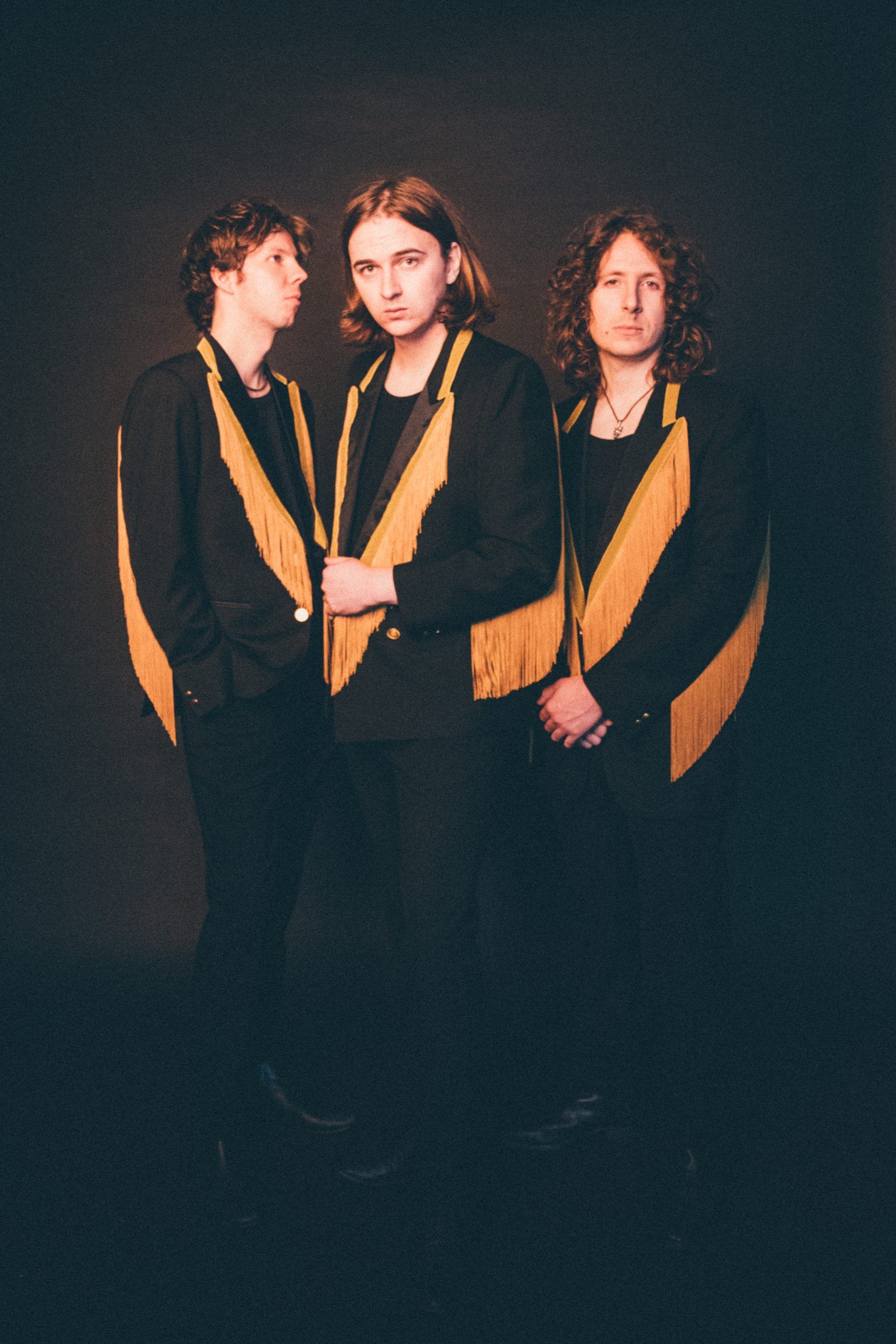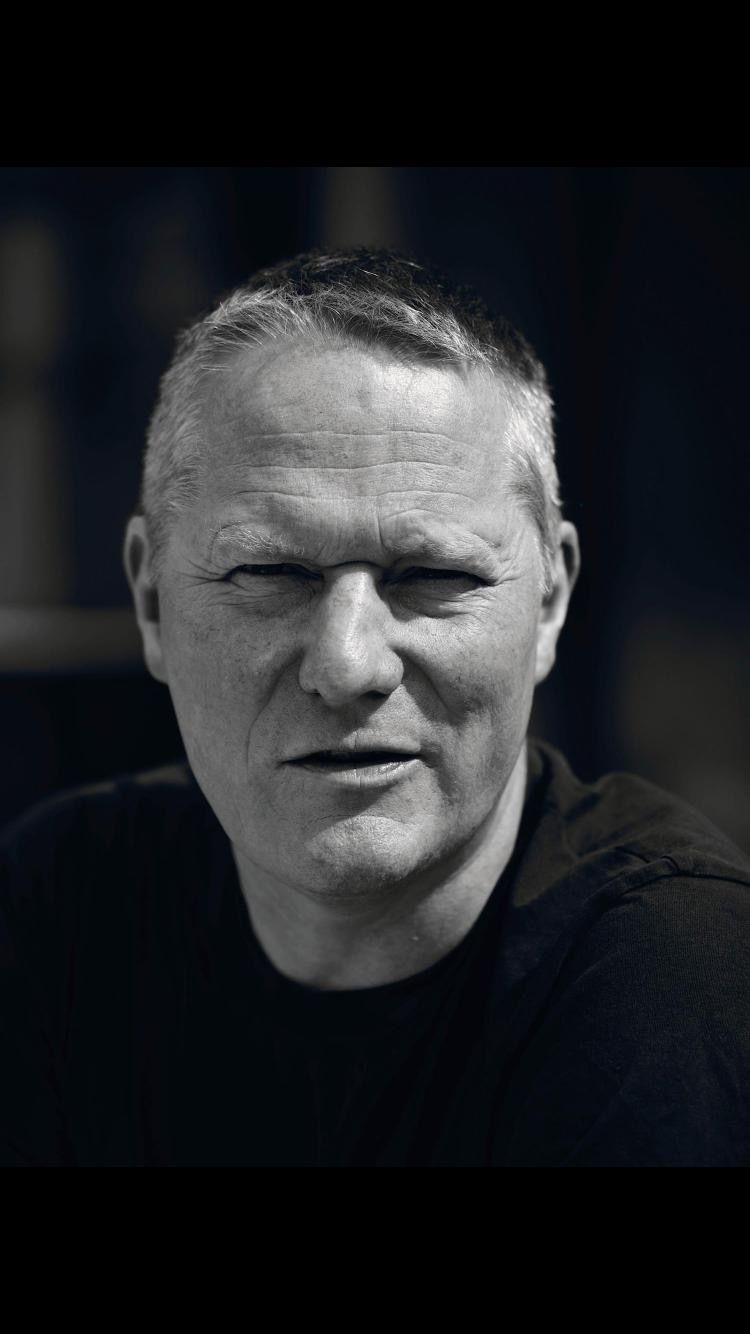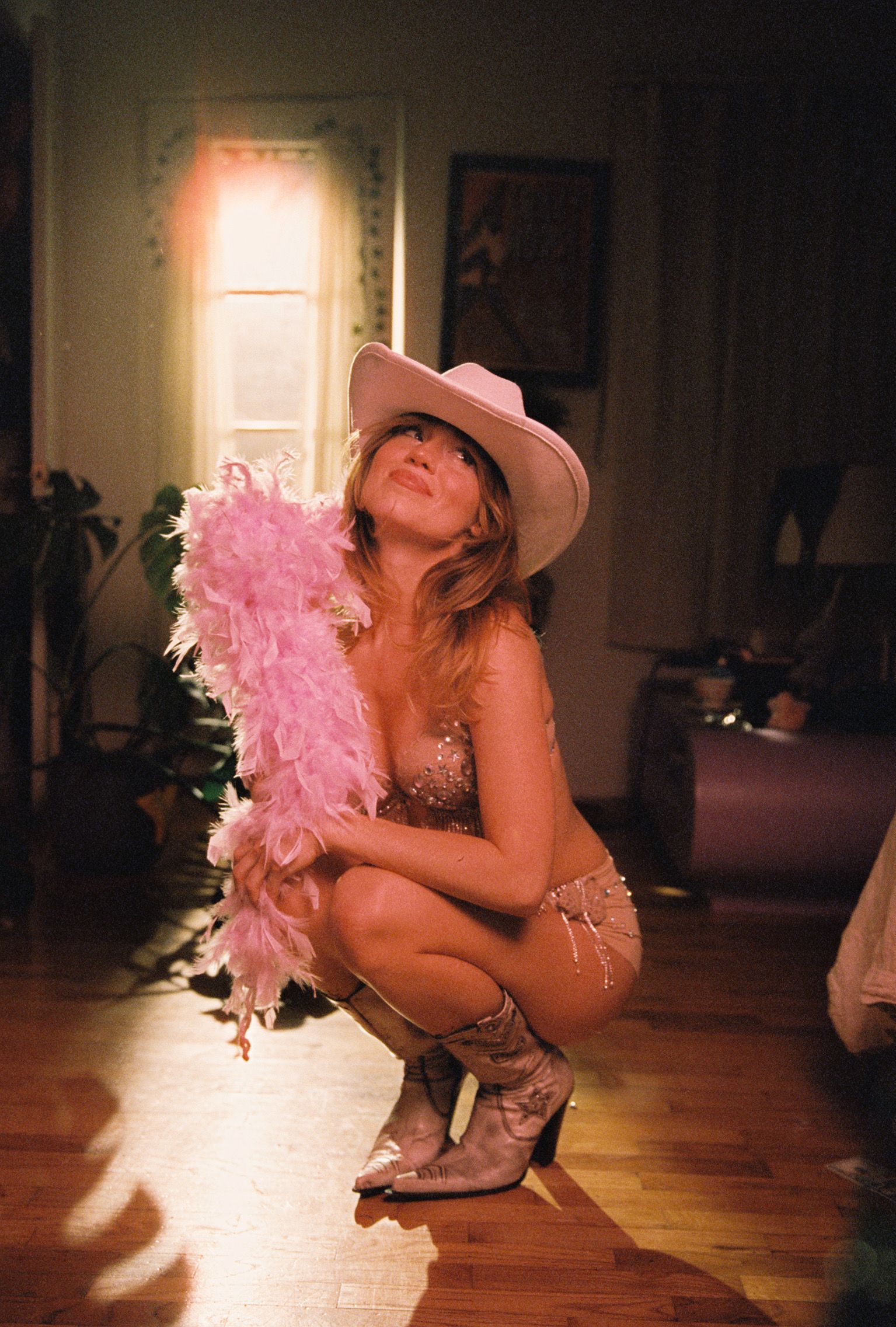When speaking with Adam, Tom, and Gus of The Howlers, it’s apparent that their chemistry is off the charts. Not only do you get the sense that their friendship is going strong (while crammed into a mini-van filled with gear), but you can see the nuances, the in-jokes, and the relationship that simmers beneath the surface, all of which translates into incredible music. What You’ve Got To Lose To Win It All, is more than just an album, it’s the culmination of heartache, love, and loss, set to some heart-aching lyrics and lush instrumentals. It’s a love letter to themselves and their fans, a catharsis, that gives listeners something to latch onto.
The band has been through so much together (and apart) and has come out so much stronger for it. The proof is interwoven within the track list. Fifteen songs that speak to being at your lowest point and finding that’s when you’re open to the greatest change. From “El Dorado” to “Lady Luck” and “When The Flowers Bloom Again,” audiences will find themselves enraptured. The Howlers have worked hard to make sure this album came to fruition, and that work has finally started to pay off. And while they’re not fussed about the accolades, or having the largest crowds, or getting a bright, shiny, award – all of which would be nice – they prefer the knowledge of knowing their music has made a difference to someone no matter how big or how small.
In conversation with 1883 Magazine, Adam, Tom, and Gus of The Howlers discuss the making of What You’ve Got To Lose To Win It All, the journey so far, what it was like to record in Metropolis Studios, and more.
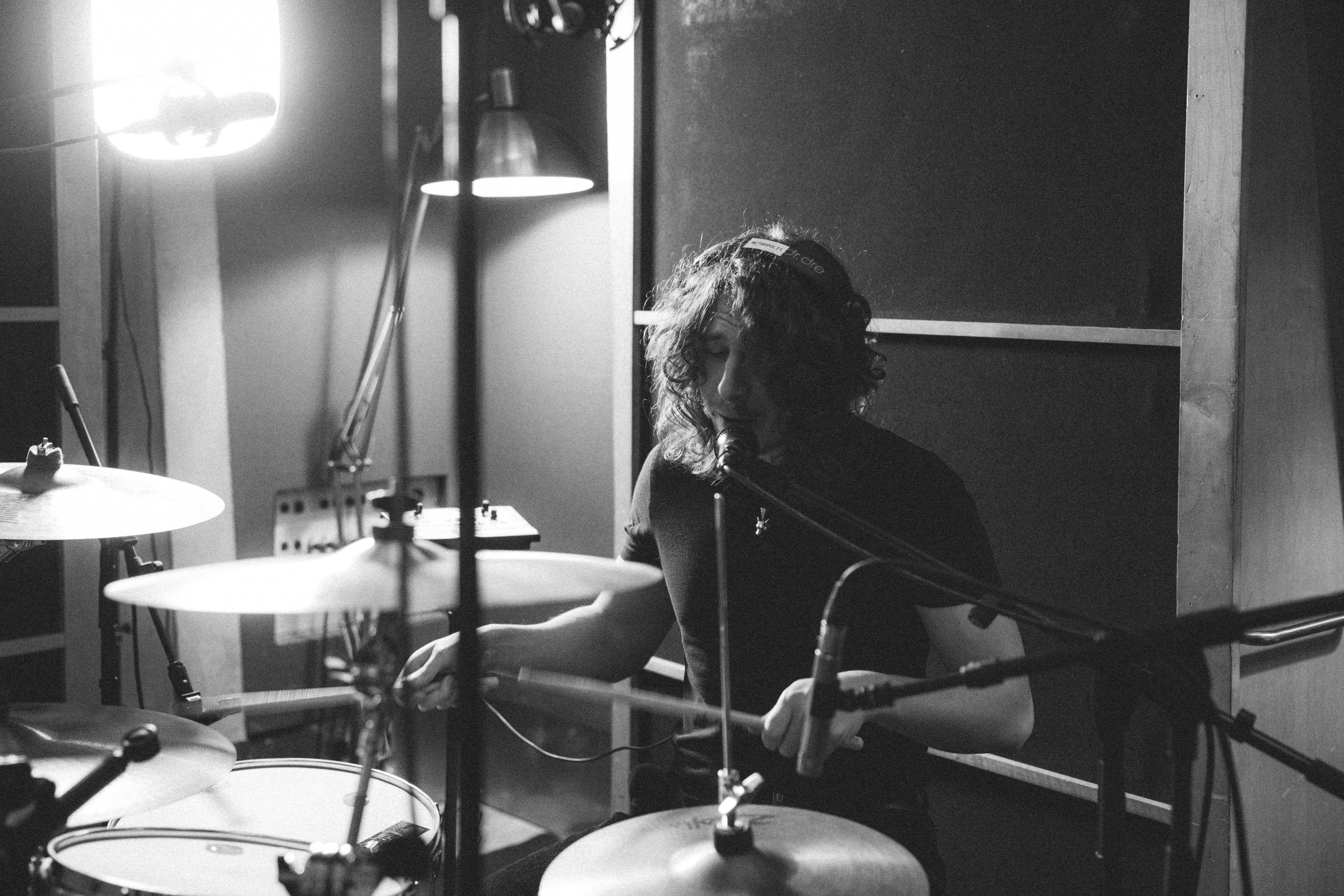
You’ve been through a lot as a band and as individuals, can you take me back to the moment you all clicked and decided that yeah, this is what we want to be doing together?
ADAM: I think it was just one of those things. Gus and I met at uni and were doing a music course anyway. We sort of wasted our time pretending to be in a band around London [laughs]. Tom was in a band around the London scene that we knew. We would go and watch. I often tell the story that Tom was our first choice of drummer. He told us to jog on because we had no songs, and we weren’t a band. As the stars aligned, a few years later, when we needed a new drummer, Tom was looking to join another band, so it fit in nicely. I don’t think there’s any defining moment that we said, “Oh, this is it.” We all have a passion for music, and we’re all creative people. So, here we sit in a stuffy van on a Bristol backstreet.
What You’ve Got To Lose To Win It All feels like life lessons set to music. There’s confusion, there’s melancholy, there’s finding the strength to carry on. Was that your intention? And which songs in particular do you find yourself resonating with?
GUS: That’s a tricky question. That’s so deep. To be honest with you, the meaning behind songs I don’t necessarily pay that much attention to. I don’t necessarily listen to the lyrics that much. It’s the music first. And if I like the song, then I like the song, because of the music rather than the lyrics. But there are a lot of them that I really like, I mean, “El Dorado” was one of the first ones that wrote as well. I always liked that one.
ADAM: As the primary songwriter, I took our joint and shared experiences — all the loss, and things that we’ve gone through, the problems that we had, our health issues — and it was all put into this album. I don’t just write from my perspective; I write from the perspective of everybody in the band. When I bring a song into the room and the boys get to hear it for the first time, that moment defines it whether they connected or not, because ultimately, it has to represent all of us.
Where did the concept of the album come from? And how long has it been in the works?
TOM: Well, we tracked the album in September 2022. And in terms of how long it’s been in the works, I joined in February 2020, so seven months prior. And it was around that time, when Adam got in touch with me, he showed me some of the demos he’d been working on with Chris (Ostler) from Black Honey. And as Gus said, El Dorado was one of the ones that really stood out. So, when they invited me to join the band, and I asked, “Have you got anything to show me?” And they did, this time around. He showed me some of the demos they’d been working on with Chris and they’re the ones that are on the album today. So, it’s been in the works for years.
ADAM: These tracks were demos, but we needed a new drummer at the time. And when Tom joined the band, those songs took a whole new life because he brought his own musicianship to it. I gave him 14 songs. And I asked, “Can you learn nine of them? We’re playing a gig in four weeks.”
TOM: It was very quick going when I joined. So. But the process for this album has been going on for years. So, it’s nice to finally be putting out.
ADAM: We wanted to get out in 2023. But our schedule just didn’t allow for it.
GUS: We didn’t want to rush it. If we were going to do it, we might as well do it properly.
Can you talk a little bit about recording at Metropolis Studios? What did that mean to you as artists?
ADAM: We’re fortunate enough to have a real relationship with that studio, and the people that work there. Felix has mastered our records for years. His dad is the infamous John Davies, who’s mastered some of the biggest brands known to man. So, we were like, we can’t afford John, but we can afford his son [laughter]. We took that route and he backed us from there. He introduced us to an engineer at the studio Harpal, who wanted to record us live. It’s a mad experience to record in a studio like that. It’s an incredible place. You walk in and think, “Wow, this is what musicianship should feel like.” But we’re not like that. The first time we ever recorded there, The Foo Fighters were in Studio A. They were rehearsing in studio A for some shows, so we weren’t allowed to go near that room. We were in studio B, which is also just as nice. To go back and record this album, and do a live session there, and work with the team again, not many artists of our size, get to do that. We love working there, it’s an amazing place.
GUS: Saved a bit of money on downtime.
ADAM: They offered us downtime. They said, “You can record it if you want. But you start at 11 at night, and you’ll run through till, 5 in the morning.”
GUS: And if someone else wants to use the studio, they get priority.
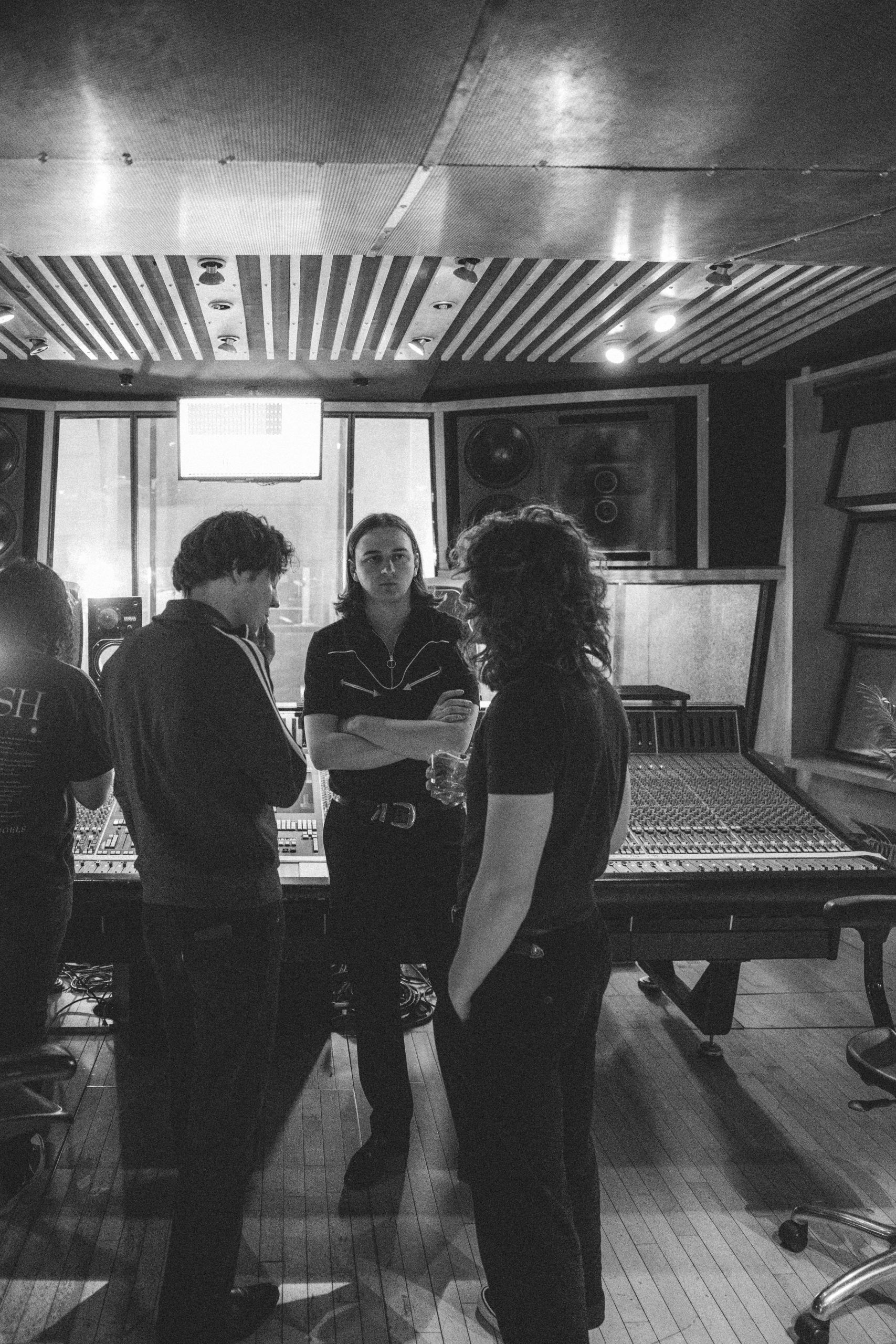
When did you guys decide to stay independent and not work under a record label? What kind of challenges and advantages have you found with that decision?
GUS: Obviously, we would have liked to have the help and the money of a label [laughs]. But once we didn’t, we were like, “Let’s just put it out ourselves.” Which has been a great benefit at this point. But a few months ago, it was tough. I mean, it’s still really tough. A few months ago, we were having a down moment. It kind of got to us a bit because having to do everything yourself without any funding, proved quite tricky.
TOM: When you’re having to decide between paying for this and paying for that and paying your bills, that was a tough moment. But you know, people like Sam, our manager, got us through it.
GUS: Now that we’re here, and putting it out, it’s quite beneficial. Every record we sell we make most of the money back. We have control and can do what we want.
ADAM: We’ve got a real potential chance of charting the record, which, for an independent band of our size is insane.
I would say that it’s paying off because that limited edition vinyl sold out in seven minutes!
GUS: Yeah, that was unreal.
TOM: Yeah, we were watching that in real-time.
GUS: We had to post about it on social media. Before we’d covered all social media 170 had gone in 3 minutes. We were like, “Fuck, what’s going on? What’s going on?”
Did you guys anticipate that at all?
TOM: No, I don’t think so.
ADAM: No, we didn’t. We didn’t have that kind of expectation. It’s kind of weird, we know it’s an album to be proud of. We are proud of it. It’s always a surreal moment when you actually see stuff like that. It’s bizarre to think there are people out there who also like what we do as much as we do, it’s kind of bizarre. So no, we didn’t expect it. It was a nice surprise to have while we were on the road feeling a bit low.
TOM: Yeah, we sat in his van for 30 minutes afterward, just like, “What?”
ADAM: I’ve been told since that we probably could have done three times as many. But the whole point of the album was to make something for the real fans. We didn’t want to oversaturate.
GUS: Big shout out to Craig from Blood (Records) as well, because he’s supported the band since day one.
ADAM: I remember calling up Craig and being like, “Dude, we’re doing an album. Let’s round off this leg of our career together.” Because he supported us since day one. Without question, he was like, ‘Yeah, 100%! We’ll do something mad; we’ll do something special!’ Nobody knew how the vinyl was going to look. We kind of said, “Here are the colours, go for it.” Everybody was a bit a bit like, “Oh, that’s not what we expected but cool.”
GUS: It worked.
ADAM: Yeah, it worked.
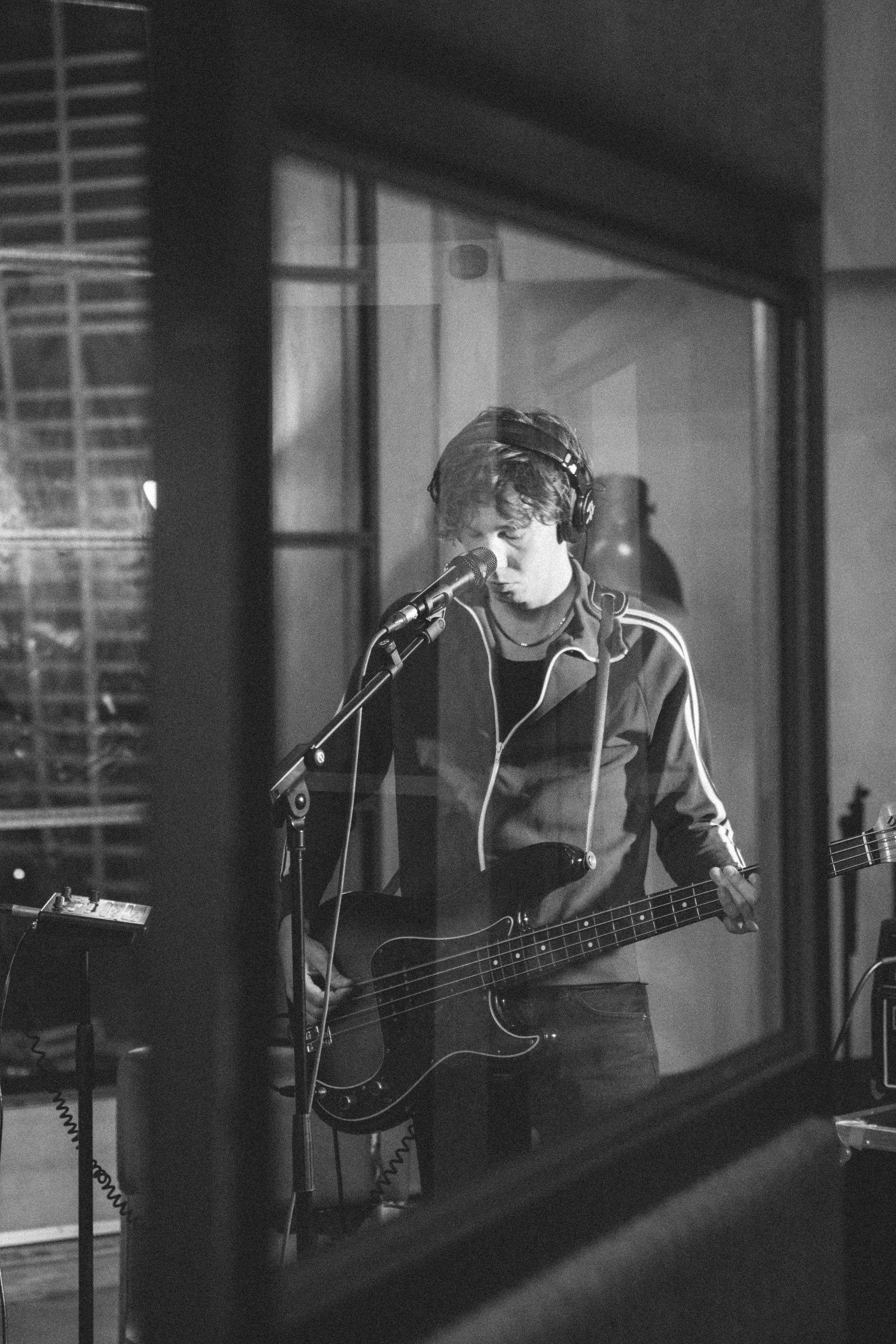
I’ll say! What is your hope for people listening to the album for the first time?
ADAM: As a band, we don’t have big egos. We give everybody our time. All we’ve ever wanted from this record, and all we ever want from our career is to make a small but meaningful difference to the people that need those songs or want to listen to us. We never set out in this band with this egotistical vision to be headlining Wembley Stadium 10 nights in a row like Taylor Swift or something. That’s not even in our 5 to 10 year plan, or whatever it is. I’m sure it’s an amazing experience for her every night. For us, this album is, is representative of a journey and everything that we’ve been through, and you know, people who have heard the songs so far are connecting with it, and that’s all we’ve ever wanted. If it gives people a bit of escapism, if it gives people a perspective, or the songs become those reflections songs where people get to think about things then that’s enough.
We don’t need a shiny award. Although, that would be nice. Music is subjective. You can’t make everybody like your music and not everybody’s going to. You put your heart and your soul into a record. You speak your mind, you speak from your perspective and after you finish recording it, it’s out of your control. People can love it; people can hate it. That’s okay. We are perfectly fine with learning and growing and being told that we can be better, and we often walk offstage and go, ‘Now that was rubbish.’ But there’ll be 10 or 15 people telling us it was great. We’re that kind of band. We just hope that this album connects with people in a way that means we can make another one.
I think that’ll be the case. Which songs are you most excited to perform live? I mean, I know you could just say all of them, but do you have any favorites?
GUS: Well, there’s a song called, To Make A King which we played maybe a year and a half ago. We played it once or twice, but it never kind of worked. Now we’re playing it acoustic in stores. It really works. If we can translate that back to a full live setting then I’m looking forward to playing that.
ADAM: I don’t think there’s any song on this album that we’re not proud of or we don’t like playing.
TOM: What’s your favorite?
ADAM: Well, I was half expecting you to say “I Need Your Love” because you love that baseline [laughter].
GUS: I like playing “On The Run.”
ADAM: I like that one, too. There’s a big moment, that gets a really big reaction.
GUS: So does “When The Flowers Bloom Again.”
ADAM: It’s the quietest song on the album. Well, the second quietest song on the album. Whenever we play it live, it gets an unusually big crowd reaction.
GUS: Because of the harmonies. Crowds love harmonies.
When you look back on your journey as artists, what advice would you give to your younger selves?
ADAM: What a great question.
Thank you.
TOM: I think the main thing is, you can never really perfect your art. The pursuit of perfection is great because, in some respects, it motivates you to be better. Concentrating on smaller steps to be a better musician is almost greater than the ambition of being perfect because there’s always going to be someone more proficient or more technically advanced than us, it’s more about just owning what you’re good at, and developing what you’re good at into your own style and molding it into good music.
ADAM: Focus on the little things a bit more, I think just being open to new ideas and don’t pigeonhole yourself, always be open to improving your craft.
GUS: We’ve definitely grown so much the past couple of years, even within the like last year, we went on tour with loads of bands. We work hard but I’d tell our younger selves to just take it easy.
ADAM: Little steps are good steps. We’re open to change. We’re driven and we so hard work sometimes we get tunnel vision during downtime and forget to reflect and enjoy the things we’ve achieved. It’s a little bit lost in translation. So, slow down, I’d say.
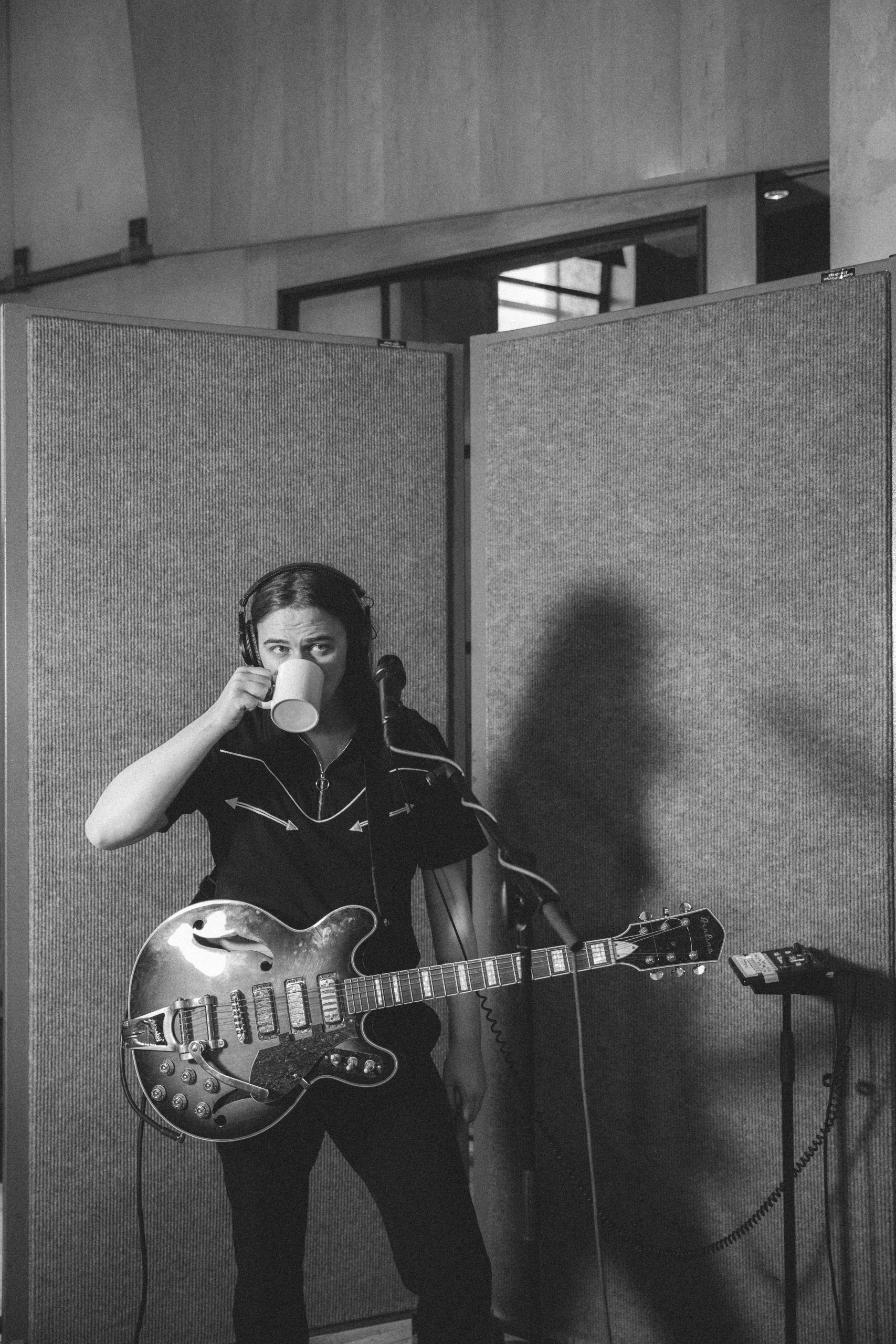
The Howlers new album What You’ve Got To Lose To Win It All is out now.
Interview Dana Reboe

